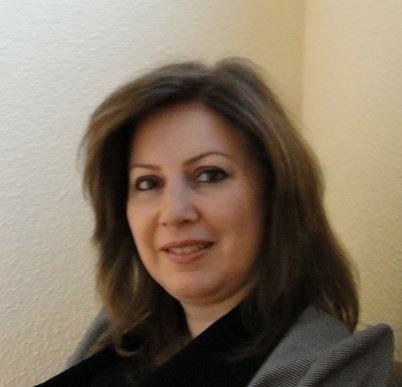Scientific Program

Alice Khachian
Iran University of Medical Sciences, Tehran, Iran
Title: Family-centered education and self-care behaviors of patients with Chronic heart failure
Biography:
Dr. Alice completed her undergraduate and master studies in nursing at the Esfahan University of Medical Sciences as Medical Surgical Nursing instructor. She has been involved in nursing education since 1997 in Iran University of Medical Sciences as faculty member and in 2012 holds a PhD of nursing education. Her professional activities are based on Clinical education, orthopedic nursing, Nursing education and Management. She is also: Member of academic consultant committee, Member of Nursing Organization of Iran as scientific consultant, Editor of “AVEDIS” public health education magazine (in Armenian language), Member of Iranian Cardiac Nurse Society, Member of Avedisian clinic management board since 2002-2010, Member of Armenian schools educational consultant board since 2006.She has many other activities related to her profession as teaching in workshops and short courses as: Qualitative and quantitative research methods, Pain, Nursing interventions, Reporting, Physical examination as nurse and so on. She served as a nursing director managing nursing research, staff development, case management and advanced practice nursing for Tehran hospitals. She has several books, articles and lectures which you can see in her CV.
Abstract
As for high prevalence and incidence of heart failure, it can impose huge health, economic, and social burden on society. Education and self-care are important aspects of management in patients with heart failure, which can control the disease complications. This study aimed to investigate the effect of family-centered education approach on self-care behaviors of the patients with heart failure.
This research is a randomized clinical trial. The study has been conducted on 72 patients with heart failure hospitalized in Shahid Rajai cardiovascular, medical, and research center, Tehran, Iran, in 2015. Patients were randomly assigned into the intervention (family-centered) and control groups. The self-care behaviors were measured before and two months after intervention using questionnaires of the self-care behaviors. Data analysis was done using paired t test and independent t test by SPSS.
Before intervention, mean (SD) values of self-care scores were 23.88 (4.71) and 21.50 (3.30) in the control and family-centered groups, respectively, with no statistically significant difference between two groups (P = 0.064). Two months after the intervention, mean (SD) values of self-care scores in control and intervention groups were 22.94 (4.71) and 42.31 (4.60), respectively. Statistical analysis showed that self-care behaviors in the family-centered group had a significant increase compared to the control group (P < 0.001).
Education with family-centered approach has a positive impact on the self-care behavior of patients with heart failure. With regard to our culture and the importance of family, it is suggested that this approach be used in addition to other training methods to improve self-care behaviors in patients with chronic diseases such as heart failure.
- Pediatric Cardiology
- Cardiac Nursing
- Clinical Cardiology
- Cardio-Oncology
- Cardiovascular Surgeries
- Case Reports on Cardiology
- Interventional Cardiology
- Nuclear Cardiology
- Cardiomyopathy & Heart Failure
- Cardiac Diagnostic Test
- Cardiovascular Radiology and Intervention
- Heart Stroke

